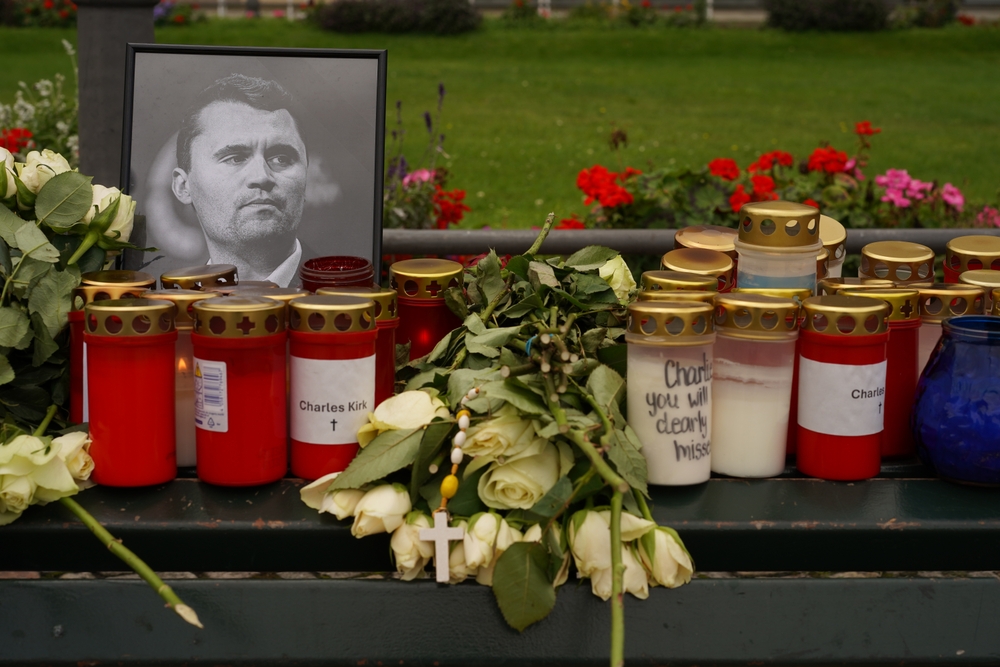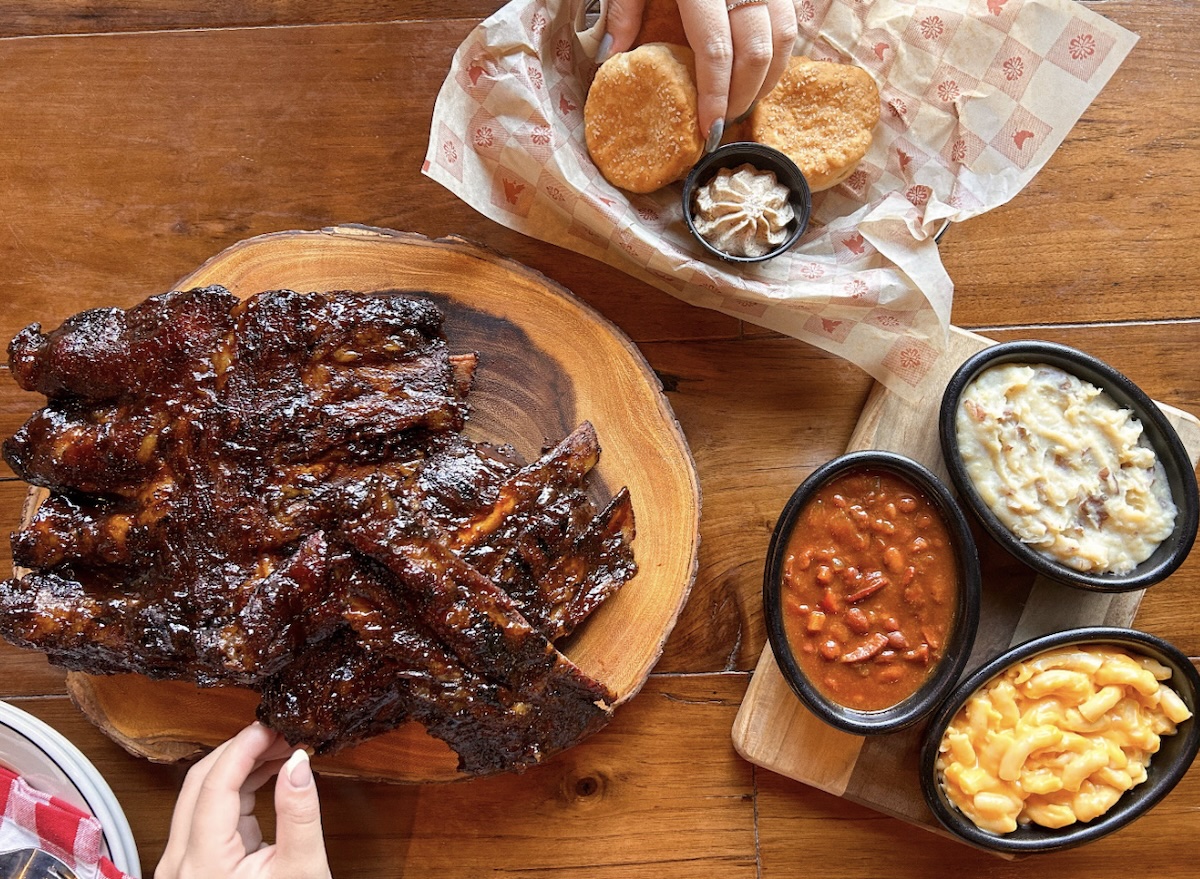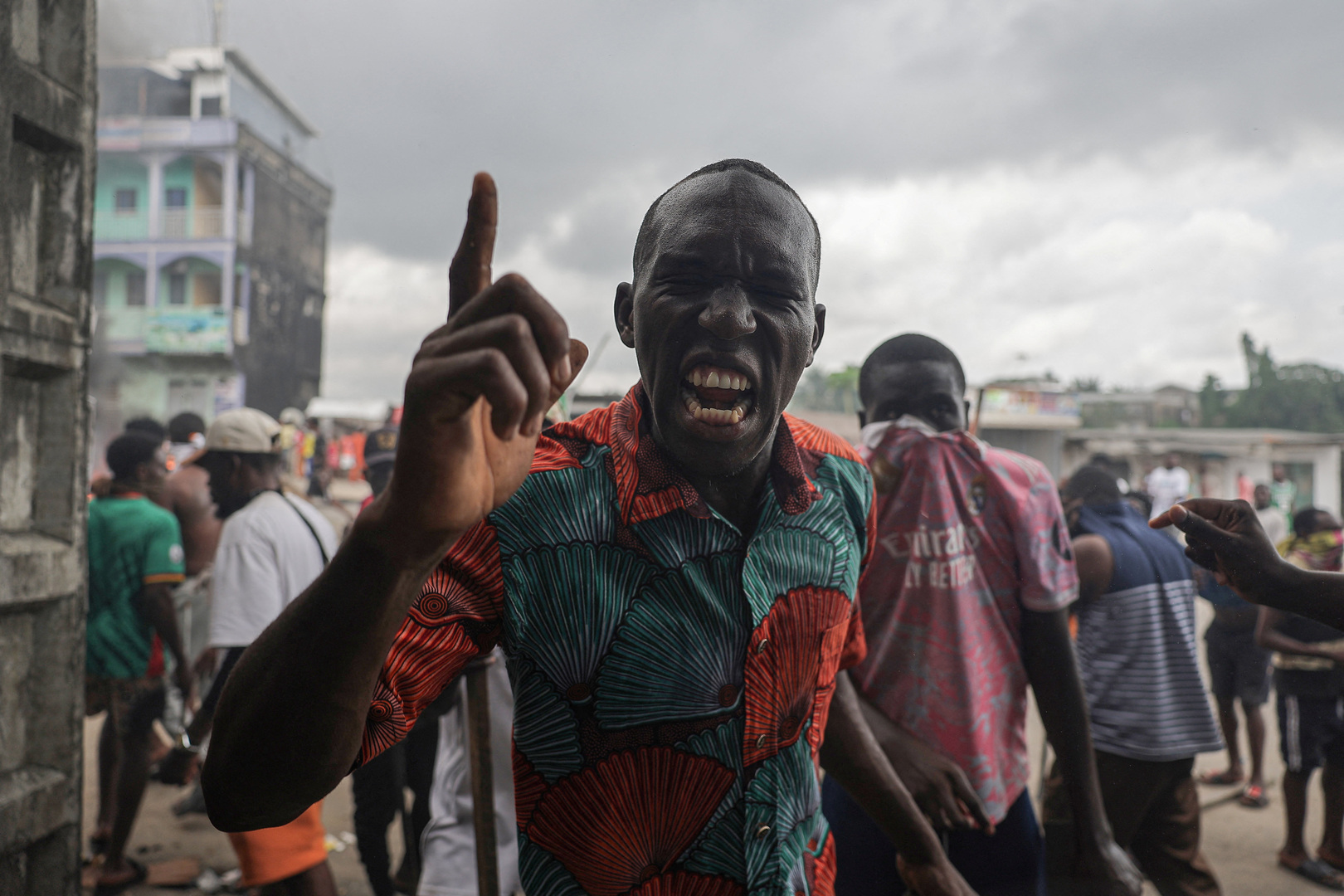The United States was rocked on September 10, 2025, when news broke that Charlie Kirk, founder of Turning Point USA and a leading conservative voice, had been fatally shot while speaking at Utah Valley University. The event was meant to be the first stop on his “American Comeback Tour,” a campus-focused initiative designed to spark conversations among young conservatives and their critics. Instead, it descended into tragedy in full view of hundreds of students and livestream audiences. In the seconds after the gunshot rang out, horror swept across the courtyard as Kirk clutched his neck and fell backward, his speech cut short by an act of calculated violence that is now being investigated as a political assassination.
As the details of the shooting emerged, one haunting piece of context quickly became the focal point of both supporters and critics: a Bible verse posted just hours before by Kirk’s wife, Erika. “Psalm 46:1 God is our refuge and strength, a very present help in trouble,” she wrote on X. It was, in many respects, an ordinary post for Erika, who had long shared scripture with her followers as part of her ministry. Yet, in the shadow of Kirk’s death, those words seemed to take on a prophetic weight. Supporters flooded her account with condolences, some interpreting the verse as a divine warning, while others simply saw it as tragic coincidence. Either way, the timing transformed Erika’s post into one of the most discussed and symbolically loaded details of the entire event.
The Shooting at Utah Valley University
The murder of Charlie Kirk unfolded with shocking speed, disrupting what began as a high-energy rally of students, activists, and critics alike. According to witnesses, the courtyard at Utah Valley University was buzzing with anticipation as Kirk fielded questions, his trademark rhetorical style on full display. Just twenty minutes into the event, a shot rang out. Students described a deafening crack that seemed to split the air. Chaos ensued as screams reverberated across the space, security rushed toward the stage, and attendees scrambled for cover. Video footage circulating online shows Kirk mid-sentence, his hand instinctively rising to his neck as blood began to flow, before he collapsed backward. In a moment, a lively debate had become a nightmare.
Emergency responders moved swiftly, rushing Kirk to a nearby hospital in an attempt to save him. Despite surgery, his injuries proved too severe, and he was pronounced dead later that evening. Investigators quickly revealed that the gunman had fired from the roof of a nearby building, some 200 yards away from the stage. The choice of vantage point suggested planning and intent rather than spontaneity.

A high-powered bolt-action rifle was recovered near the location where the shooter was believed to have fled, adding weight to suspicions that the assassination had been carefully prepared. Authorities detained and questioned multiple individuals, including one elderly man who was quickly released and another younger figure described as “college age,” though as of this writing, no one has been formally charged.
For students who witnessed the shooting firsthand, the trauma is still raw. Many spoke to reporters of feeling “hunted,” comparing the moment to the mass shootings they had seen replayed in national headlines. What was meant to be an educational dialogue on political issues became instead an intimate experience with mortality, fear, and the fragility of public life. Utah Governor Spencer Cox condemned the shooting, calling it an attack on both Kirk and free expression, while federal officials confirmed that the FBI was leading an expansive manhunt for the suspect. For the university community, the campus became a place of grief rather than debate.
Erika Kirk’s Haunting Psalm
Among the many details that emerged in the hours after the shooting, none carried the same symbolic weight as Erika Kirk’s social media post. Just hours before her husband’s death, she had shared a verse from Psalm 46:1: “God is our refuge and strength, a very present help in trouble.” Erika had built her public identity around faith and family, using platforms like Instagram and her ministry project BIBLEin365 to encourage followers to stay grounded in scripture. For her, the verse was routine, part of an ongoing stream of devotionals meant to uplift others.
In the aftermath of the tragedy, however, the verse became something far greater. Supporters flooded her accounts with comments of prayer and consolation, with many declaring the post a divine foreshadowing of events to come. Some interpreted it as God preparing Erika for the unimaginable; others simply marveled at the tragic coincidence. Either way, Erika’s words resonated across political and spiritual communities, casting a sacred shadow over the public discourse that followed.
Erika herself, however, has not publicly spoken since the assassination. Friends describe her as consumed with caring for the couple’s two young children a daughter born in 2022 and a son born in 2024 and relying on the faith that has been central to her life for comfort. The couple’s family history has always been woven with devotion: Erika, a former Miss Arizona USA and now a doctoral student in biblical studies, often emphasized the importance of faith as a daily practice. The cruel alignment of her scripture post and her husband’s killing has now forever linked her ministry with one of the darkest moments in American political life.
Political Reactions and Rhetorical Aftershocks

Reactions from the political world came swiftly and with predictable polarization. Former President Donald Trump, who had counted Kirk among his most loyal allies, posted almost immediately on Truth Social: “We must all pray for Charlie Kirk, who has been shot. A great guy from top to bottom. GOD BLESS HIM!” Within a day, Trump released a longer statement, framing Kirk as a martyr and condemning the “demonization” of political opponents in America. He promised to posthumously award Kirk an honor recognizing his contribution to conservative politics. Vice President J.D. Vance echoed the grief, describing Kirk as “a genuinely good guy and a young father” and urging prayers for his family.
Conservative media outlets and Republican lawmakers largely followed this framing, treating the killing not only as a tragedy but as evidence of a broader climate of hostility toward right-leaning figures. Fox News devoted hours of coverage to the event, while Turning Point USA declared Kirk a “martyr for truth and freedom.” At vigils across the country, young conservatives gathered to mourn his death, often framing the act of violence as politically motivated persecution.
Yet outside of conservative circles, the responses carried different nuances. Progressive figures, even those who had clashed bitterly with Kirk during his lifetime, condemned the violence as unacceptable. Liberal commentators posted messages like, “We may have disagreed on almost everything, but violence is never an answer.” Still, some critics highlighted the irony of Kirk’s position: a strong defender of expansive gun rights who was killed by gunfire while speaking about mass shootings. For them, his death underscored the contradictions of America’s relationship with firearms. This duality martyr to some, cautionary tale to others reflects just how polarizing Kirk’s legacy remains.
Conspiracy Theories and the Book Listing

No high-profile tragedy in the digital era escapes the churn of conspiracy theories, and Kirk’s assassination proved no exception. Within 24 hours, screenshots began circulating of a book allegedly titled The Shooting of Charlie Kirk, which appeared to have been published on Amazon a day before the actual murder. Social media exploded with speculation. Was this evidence of foreknowledge? A cover-up? Proof of shadowy actors behind the assassination?
Amazon quickly pulled the listing and explained that the publication date was an error caused by a technical glitch. The company clarified that the book had been uploaded after the shooting and not before. Still, the explanation did little to quell the internet’s appetite for speculation. In online forums, users drew comparisons to alleged premature reporting of 9/11 and other major tragedies, arguing that coincidences of this kind suggested a larger conspiracy.
For Erika and the Kirk family, the sudden swirl of speculation added yet another layer of intrusion into an already unbearable grief. Theories about foreknowledge, opportunism, and hidden forces quickly overshadowed the real human cost of the assassination. Opportunistic self-publishers appeared to have exploited the tragedy for profit, rapidly producing e-books to capitalize on the moment. The result is a familiar, troubling cycle: private pain transformed into fodder for public paranoia, in which fact and fiction blur to create endless noise.
The Legacy of Charlie Kirk

Charlie Kirk’s death cuts short a political career that had already made him one of the most influential conservative activists of his generation. At just 31, he had built Turning Point USA into a powerhouse organization with a strong presence on college campuses nationwide. His fiery rhetoric, viral soundbites, and unwavering support for Donald Trump made him both a hero to conservatives and a target for critics. Kirk embodied the combative, digitally native politics of the Trump era, where cultural battles are waged not only in Congress but also in clips, tweets, and memes.
To his supporters, Kirk was a bold visionary who inspired young conservatives to challenge liberal orthodoxies and champion free speech. His critics, by contrast, painted him as a provocateur who thrived on outrage and culture-war theatrics. Both interpretations are now frozen in time, as Kirk’s death halts any further evolution of his political identity. For the right, he may become a martyr; for the left, a symbol of America’s gun culture and its tragic consequences.
The assassination also underscores the vulnerability of public figures in an era of hyperpolarization. The very openness that allowed Kirk to connect with audiences on campuses and online also exposed him to extraordinary risks. His killing is likely to lead to tighter security protocols at future political events, especially on college campuses. It may also harden rhetoric on both sides of the political divide, with conservatives pointing to hostility toward their movement and progressives emphasizing the dangers of unchecked gun rights. In either case, Kirk’s legacy will continue to shape debates long after his death.
A Psalm and a Question for America
At the center of this tragedy remains Erika Kirk’s haunting post. In its brevity, it captured both a moment of private devotion and the cruel irony of timing. “God is our refuge and strength, a very present help in trouble” is a verse meant to console in times of uncertainty. That it now sits at the heart of a national tragedy underscores how faith, coincidence, and public violence intersect in ways no one can predict.
Charlie Kirk’s assassination is not just the loss of a polarizing political figure; it is a symbol of the fragility of discourse in America. It forces the nation to confront uncomfortable questions: How do we preserve free expression while safeguarding lives? How do we protect families from the glare of politicization and speculation in moments of grief? And most crucially, how do we ensure that violence does not become the default language of political conflict?
For Erika and her children, the verse will forever mark the moment their lives changed. For the nation, it may stand as a reminder that public life is fragile and that politics, at its core, must remain a contest of words, not weapons. The answer to whether America can learn from this tragedy depends on what comes next: whether grief hardens into division or inspires a renewed commitment to dialogue, restraint, and humanity.











Leave a Reply